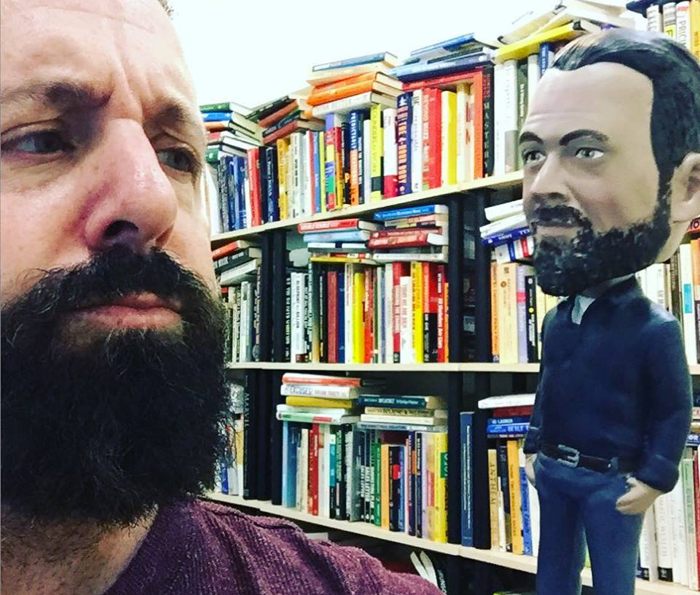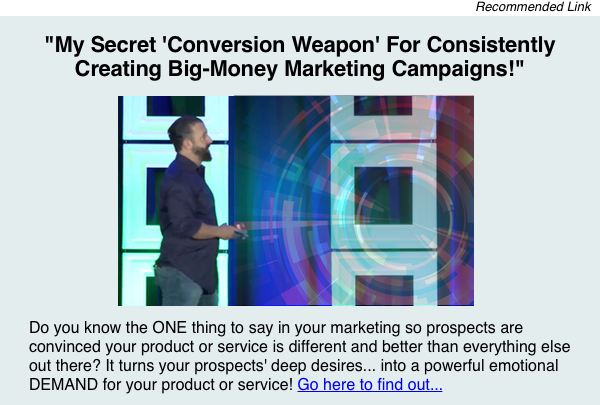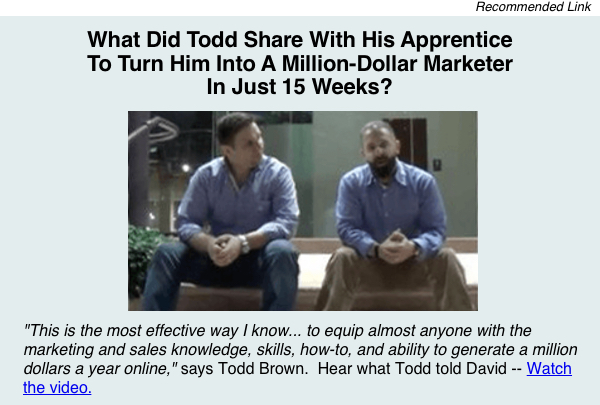When I was younger, I hated reading.
My sole objective in high school was never to bring books home.
Of course, it was no surprise when not a single college wanted anything to do with me. Off to community school I went.
Today I love reading.
I read everyday. Usually, a book a week.
But not the usual suspects anymore most entrepreneurs and marketers are reading.
I haven’t read a traditional marketing or business book in years.
Instead, I’m usually reading something from one of four categories — stuff most marketers ignore, but should be reading.
1. Books on Rhetoric
The study of rhetoric — the use of figures of speech for persuasive writing or speaking — can be fascinating. And wildly valuable for all marketing.
Most folks think it’s some ancient science or something. Meanwhile, most use rhetorical devices every day without realizing it.
The godfather of rhetoric, Aristotle, defined rhetoric as: the faculty of observing in any given case the available means of persuasion.
Said on my level: Rhetoric is all about how to best communicate an idea for maximum impact.
And that’s really what marketing is all about, right? Impact. Persuasion.
One of my favorite books on this topic, and the easiest to start with, is Rhetorical Devices: A Handbook and Activities for Student Writers.
Like a nerd, I carry it with me in my work bag.
2. Books on Argumentation
Every marketing campaign is really just the presentation of an argument.
An argument being defined as: a reason or set of reasons given with the aim of persuading others that an action or idea is right or wrong.
A good marketing campaign puts forth a rock-solid, airtight emotional and logical argument. And leads the prospect emotionally and intellectually to see why your product or service is perfect for them.
Pretty much… the same as what a prosecutor does when presenting a case (i.e. argument) to a jury.
So studying how good prosecutors assemble each piece of their argument, and how they present it (using rhetorical devices), is a valuable thing for you and I as marketers.
A great book to start with is Win Your Case by Gerry Spence.
He’s a retired lawyer who never lost a criminal case either as a prosecutor or a defense attorney. So I’d say he knows a thing or two about argumentation.
3. Books on Finance
“Accounting is the language of business. If you can’t speak the language, it’s tough to win the game,” said Warren Buffet.
The more I’ve come to learn about, and understand the nuances of business financials — income statements, balance sheets, and statements of cash flow — the more I’ve been able to spot how to best scale my own businesses. And make them more and more profitable.
There’s just something about understanding the numbers as an entrepreneur that makes it much easier when making decisions.
As long as you’re not doing anything funky or illegal, numbers don’t lie. And they take opinions and assumptions out of the equation.
If you hate accounting, like I used to, start with some sort of Business Finance 101 book. Or Business Finance For Dummies. Something like that.
4. Fiction
I’ve only recently started reading more fiction.
I used to hate it. Would rather just watch the movie version. Still sort of feel that way.
But, today, I read fiction for both the entertainment value as well as the storytelling value.
It’s worthwhile for us marketers to see how folks like James Patterson and Lee Childs tell stories. How they craft the characters. The plot. The dialogue. The details.
Great marketing almost always has a storytelling component. So it’s well worth studying.
Storytelling is one of those skills I believe is best developed by reading a lot of good stories from good storytellers.
Commercially successful fiction is a good way to do it.
The book I just finished reading on the plane two and from Baltimore, and enjoyed — Merry Christmas, Alex Cross.
Regardless of what you read, as a marketer… you should be reading a lot.
To come up with good ideas, you need a lot of diverse input.
Reading books in strange or unusual categories will help give you that input and make you a better marketer.
P.S. I can’t even believe I’m going to utter these words. But…
If you’re doing a lot of writing for your marketing, boning-up on punctuation can also be helpful.
It’s amazing how punctuation impacts the meaning of stuff.
“Your crap” versus “You’re crap”.
Yeah, that boo-boo could likely have a little impact on prospects. 🙂



